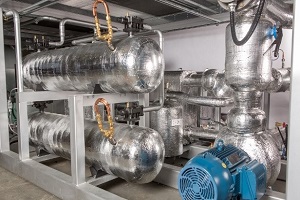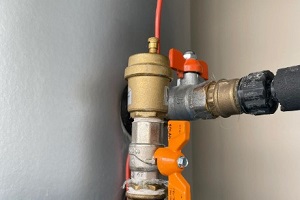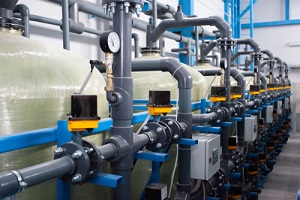 Glycol is commonly used in closed-loop HVAC systems which provide heating and cooling. The glycol solution is circulated through the system’s pipes, carrying thermal energy to and from the heat exchangers. Although glycol is an efficient and reliable heat transfer fluid, it is not immune to failures that can cause costly downtime and equipment damage.
Glycol is commonly used in closed-loop HVAC systems which provide heating and cooling. The glycol solution is circulated through the system’s pipes, carrying thermal energy to and from the heat exchangers. Although glycol is an efficient and reliable heat transfer fluid, it is not immune to failures that can cause costly downtime and equipment damage.
It is important to understand the common causes of glycol system failure and how to identify and fix the problem. Understanding how to maintain and troubleshoot your glycol system is essential to ensuring optimal performance and energy efficiency.
How to Tell if Your Glycol System Has Issues?
There are several signs that can indicate that your glycol closed-loop system is beginning to fail. Some of the visible common indicators of glycol failure include frost on your pipes, leaks, fluid that is discolored, or even fluid that has a foul smell. Overall, you will also notice an increase in your system’s energy consumption which is a result of poor heat transfer.
If you notice any of these signs, it is important to take action immediately. Ignoring these warning signs can potentially result in a pipe burst, corrosion, stress on your pumps, and eventually costly repairs. A professional water treatment company can help you in diagnosing and fixing these problems to ensure continued performance and efficiency of your glycol closed-loop system.
Freezing Pipes
If your glycol closed loop system is freezing over, it means that the glycol solution is dropping below its freezing point. The most common reasons for glycol freezing include inadequate glycol concentration, low glycol flow rate, and inadequate insulation or heat tracing. Glycol solutions can have a freezing point between -50°F to 10°F depending on the percentage of glycol in the fluid.
If your pipes are freezing at the normal freezing point of 32°F there is an issue with the solution. Your water treatment company can help you replace and balance your glycol at the appropriate percentage to achieve freeze protection. Note that this should be done immediately to prevent a pipe burst, and to keep your system from overworking should there be slush in your pipes.
Check for Leaks
If your glycol closed loop system has a leak, it means that the glycol solution is escaping from the closed loop and may be damaging the surrounding components. Glycol leaks can have several causes, including corroded or damaged pipes, faulty fittings or valves, and worn-out pump seals.
 A glycol leak will impact system performance as less glycol circulates, and will bein to increase your energy consumption. Glycol is a hazardous chemical and can cause respiratory and skin irritation, and can damage other equipment if it leaks onto other components of your system.
A glycol leak will impact system performance as less glycol circulates, and will bein to increase your energy consumption. Glycol is a hazardous chemical and can cause respiratory and skin irritation, and can damage other equipment if it leaks onto other components of your system.
Consult your mechanical contractor to address the leak and your water treatment company to replace your glycol solution once the leak is repaired.
Discoloration of Water
The glycol solution in your closed loop system should be clear and colorless (unless dyed), and any discoloration can be a sign of corrosion or other issues. Corrosion in the pipes or other components can cause discoloration, as the rust or other debris mixes with the glycol.
Exposure to bacteria can also cause discoloration. Keep in mind that closed loop systems should not be exposed to the outside environment and any discoloration is a sign of an issue.
Odor from Water
Even if the water looks normal, it may begin to carry an unusual odor when the glycol starts to fail. Keep in mind that these systems are supposed to be closed and not exposed to the outside environment. Usually, fluid that smells like rotten eggs is a sign that the system is fouled by bacteria.
The smell is the result of hydrogen sulfide gas which is a byproduct of bacterial growth. If left untreated, the bacteria can cause corrosion and damage to the system, reducing its efficiency and potentially system failure.Your water treatment company can help in cleaning your system of bacteria, and they may recommend adding biocides or other chemical treatment to prevent bacterial growth in the future.
Poor Heat Transfer
If you do not notice any of the issues listed above, you may notice there is an issue with your glycol during peak loads when your system cannot keep up with demand. You will notice that your system is not providing the same output as it normally does, which is usually due to poor heat transfer.
Poor heat transfer can be the result of contaminants in the system, but it can also be from a low glycol concentration. This can be the result of a leak as mentioned above, but it can also be due to glycol breaking down. If your glycol is not serviced regularly it will be tough to know how much life is remaining in the fluid. Exposure to high temperatures or oxygen can cause breakdown as well as overall age.
 Your water treatment company can have your glycol tested by a lab to give you an accurate estimate on how much life your glycol has remaining as well as help with replacement.
Your water treatment company can have your glycol tested by a lab to give you an accurate estimate on how much life your glycol has remaining as well as help with replacement.
Poor heat transferability will cause your system to work harder to achieve the same results and can take a toll on the overall life of your equipment.
Work With the Glycol Experts at Tower Water
Glycol is critical for closed loop water systems exposed to all different types of temperatures. In order to keep these systems operational, regular maintenance is needed to prevent the glycol from breaking down.
The experts at Tower Water can help you to keep your glycol system in good working order and help you with any testing or maintenance. Give us a call at (212) 518-6475 to learn more or to schedule an appointment to discuss your system’s issues.
